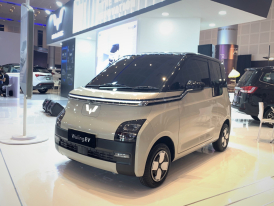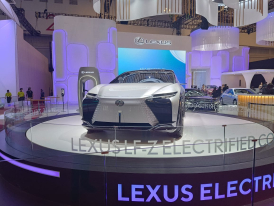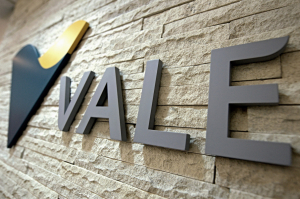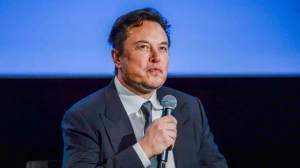Indonesia aims high on EV, but challenges remain
Indonesia wants Tesla Inc. to make electric cars in the country, not just batteries and is willing to take the time to convince Tesla founder and CEO Elon Musk to see it as more than just a rich repository of resources.
“What we want is the electric car, not the battery. For Tesla, we want them to build electric cars in Indonesia,” President Joko Widodo said in an interview with Bloomberg on August 19, 2022. “We want a huge ecosystem of electric cars.”
Widodo had a similar expectation from other carmakers including Ford Motor Co., Hyundai Motor Co., Toyota Motor Corp. and Suzuki Motor Corp., signalling his intention to seek investment and ensure Indonesia was not relegated to being just a raw material supplier or component maker in the global electric-vehicle supply chain.
“It’s still a discussion,” he said when asked what’s holding back a deal with Tesla. “Everything needs time.”
Cleaner energy
Indonesia's target of achieving net-zero emissions (NZE) in 2060 does not mean that all vehicles will be electric vehicles (EV), but rather, there will be other eco-friendly technologies, Industry Ministry official Dodiet Prasetyo stated.
"In future, there may be other technologies that can provide better results or use renewable energy," he noted during the "Isuzu AC/DC Future of EV for Commercial Vehicles" discussion as part of the Gaikindo (the Association of Indonesian Automotive Manufacturers) Indonesia International Auto Show (GIIAS) in South Tangerang on August 16, 2022. "However, we still support EV development in Indonesia," he affirmed.
According to the Energy and Mineral Resources Ministry's website, NZE is a government project to reduce carbon released into the atmosphere, so that it does exceed the level of emissions that the earth is capable of absorbing.
Chinese automotive manufacturer Chery said on August 15, 2022, that it was ready to build a factory and research and development center in Indonesia. President Director Tao Yong said the company was looking for a strategic location to build the factory and center. Meanwhile, in an earlier statement, the company said it was ready to invest US$1 billion in Indonesia.
General Motors’ minicar joint venture in China, SAIC-GM-Wuling (SGMW), has launched Air EV, a fully electric entry-level car in Indonesia. The automaker hopes to expand its footprint outside China amid strong global demand for electric vehicles.
The Air EV is the company’s first electric vehicle launched outside China and built on Global Small Electric Vehicle, a dedicated EV platform for global markets. The automaker expects to play a role in a market dominated by Japanese auto majors.
Launched at the GIIAS, the Air EV comes in two battery pack options – 17.3 kilowatts per hour (kWh) and 26.7 kWh – delivering a driving range of about 200 and 300 kilometers, respectively.
Challenges in creating supportive ecosystem
Challenges in implementing a flawless ecosystem for the use of electric vehicles in Indonesia remain a daunting task. This is because much of the electricity used to power the vehicles comes from coal, often referred to as a dirty source, according to Antara news agency.
The Institute of Transportation Study (Instran) Chairman Darmaningtyas explained that 63% of electric fuel still comes from coal which makes electric vehicles (EVs) not fully eco-friendly. As a result, the electric vehicle utilization will only delay pollution considering that coal also produces waste, he said on August 21, 2022.
On top of that, the current price for electric vehicles remains high for the public, Darmaningtyas said. "If it is economically beneficial, then the people will transition to EVs by themselves," he added.
Already have an account? Sign In
-
Start reading
Freemium
-
Monthly Subscription
20% OFF$29.75
$37.19/MonthCancel anytime
This offer is open to all new subscribers!
Subscribe now -
Yearly Subscription
33% OFF$228.13
$340.5/YearCancel anytime
This offer is open to all new subscribers!
Subscribe now







